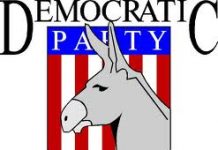WASHINGTON, D.C. – U.S. Representatives Larry Bucshon, M.D. (R-IN-08), Ed Whitfield (R-KY-01), Joe Kennedy, III (D-MA-04), and Frank Pallone, Jr. (D-NJ-06) introduced bipartisan legislation to reauthorize the National All Schedules Prescription Electronic Reporting Act, or NASPER Act. NASPER provides grant funding to States to foster the use of prescription drug monitoring programs (PDMPs) in the fight against the growing prescription drug abuse epidemic.
Representative Ed Whitfield:
“Prescription drug abuse continues to takes lives, ruin families, and drain on our health care system and its resources. Tragically, drug overdose death rates in the United States have increased five-fold since 1980, and drug overdose now kills more Americans than automobile accidents. The NASPER program will provide States with the necessary investments to build upon the success PDMPs have had in reducing prescription drug abuse through streamlined access to timely, accurate, and secure patient prescription history. This will allow physicians to properly treat their patients while cracking down on the interstate trafficking of prescription medications and patients who are simply doctor shopping.â€
Representative Joe Kennedy, III:
Â
“There are few people in this country that have been spared the heartbreak of watching a loved one, neighbor or friend fall victim to opiate addiction. It’s an epidemic striking red states and blue states, small towns and big cities, neighborhoods rich and poor. The bipartisan coalition behind this bill today is a testament not just to the breadth and depth of the problem but to the commitment in Congress to address it. NASPER works to strengthen one important piece of the solution – prescription monitoring. It will empower states and advocates on the front lines of this crisis to build successful PDMPs that can communicate across state lines and help identify at-risk behavior – a key first step in fending off addiction before it starts.â€
Representative Larry Bucshon, M.D.:
Â
“Prescription drug addiction has become an epidemic affecting too many of our families in Indiana. As a physician, I’ve seen firsthand how addiction can turn lives upside down. That’s why I’m proud to join a bipartisan effort to address this problem and bring relief to our communities. Reauthorizing NASPER will give states and local communities the resources necessary to monitor prescription drug use and to make sure prescription drugs are not crossing state lines. By not interfering with physicians’ ability to care for their patients, this bill promotes good medical practices and helps stop addiction in its tracks.â€
Â
Representative Frank Pallone, Jr.:
Â
“The misuse of prescription drugs has escalated at an alarming rate over the last two decades with corresponding increases in both overdose deaths and addiction. Many people, especially teenagers, believe prescription drugs are safer than illegal drugs because they are manufactured and prescribed by doctors. However, with prescription drugs accounting for over 20,000 deaths in the United States each year, that is a potentially lethal misconception. I am pleased to re-introduce the bipartisan NASPER Act in order to help ensure that prescription drugs are used only for intended purposes with legitimate prescriptions.â€
Background:
NASPER originally became law August 11, 2005 and is administered by the Substance Abuse and Mental Health Services Administration (SAMHSA) within the Department of Health and Human Services. It is designed to assist states in combating prescription drug abuse of controlled substances through prescription drug monitoring programs, or PDMPs.
The reauthorization of NASPER would allow SAMHSA to provide grants to states for the establishment, implementation, and improvement of PDMPs offering timely access to accurate prescription information. This is critical to a provider’s ability to screen and treat patients at risk for addiction. Recognizing the importance of data sharing between state PDMPs, The NASPER program also promotes greater information sharing by requiring grantees to facilitate PDMP interoperability with at least one bordering state, while simultaneously protecting against unauthorized access to patient records. The NASPER reauthorization language would also encourage States to explore ways to incorporate access to their PDMPs into provider workflow systems such as electronic health records and e-prescribing. Making prescriber access to PDMPs faster and more efficient will facilitate great usage of these effective warning systems.







